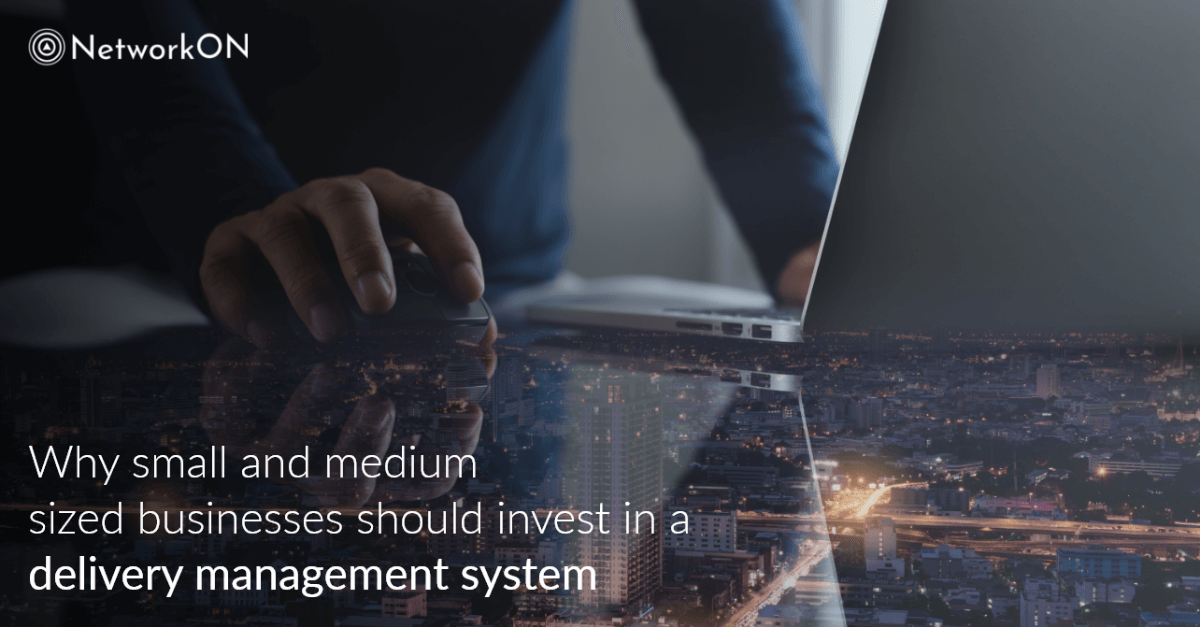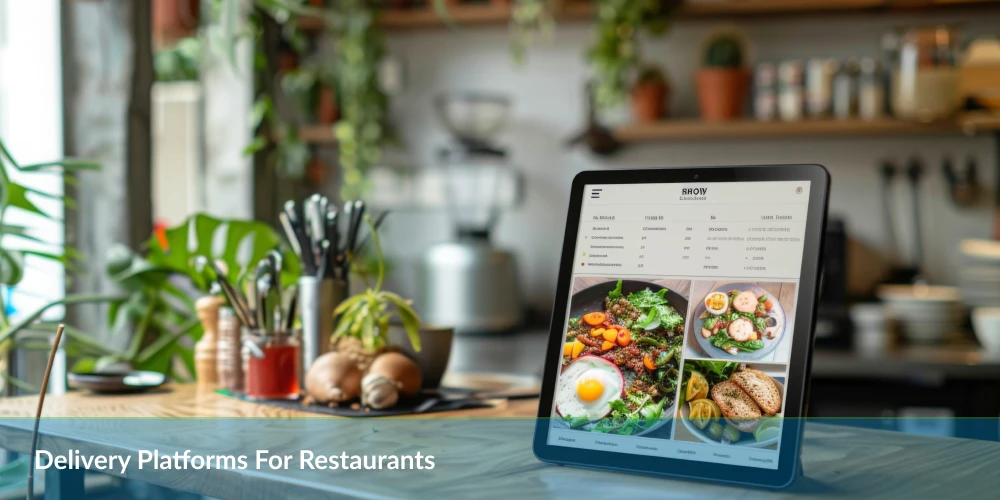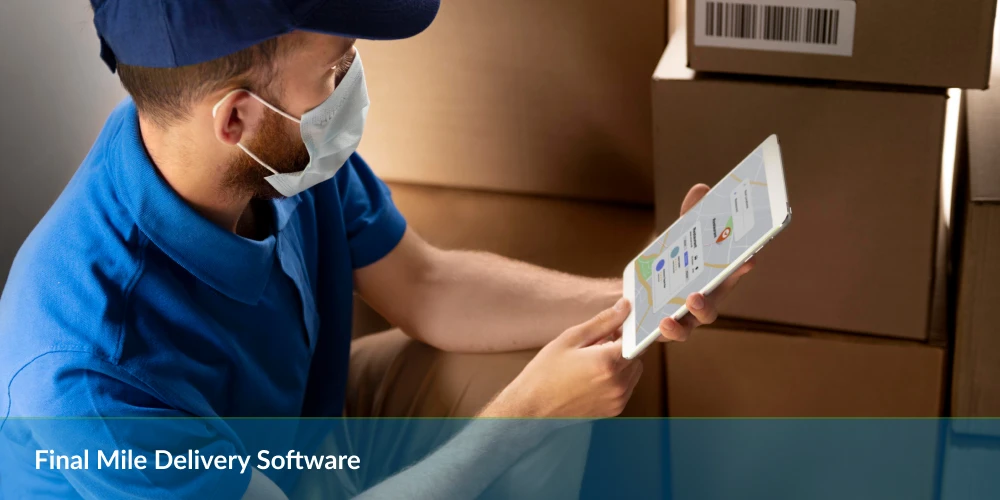Table of Contents
Did you know that in 2020, 15.05 billion deliveries were completed successfully globally with an average time per delivery being 12 minutes.
Delivery is no longer restricted to shopping on eCommerce giants like Amazon, but smaller players in the retail industry are making huge leaps in the eCommerce ecosystem. The sale of grocery delivery and pickup has increased by $6 billion in the US alone between August 2019 to June 2020.
“To keep a customer demands as much skill as to win one.”
– American Proverb
2021 is all about exceeding on-demand expectations of customers and delay of any sorts is not an option. Organizations that are able to match their customer’s expectations experienced better loyalties. 96% of customers say that their experience with a brand is a major factor for their loyalty towards it.
You need access to all sorts of tools like an advanced delivery management system, a good digital marketing strategy and more. The world has never been on a level playing field until now and businesses of all sizes can transform themselves into multi-million dollar enterprises if they understand the customer preferences.
In this article we will take a look at how small and medium enterprises can leverage a delivery management system to constantly improve their customer’s experience and unlock more opportunities to create new brand advocates.
How the On-Demand Business Trends are Changing Businesses
Before we dive into the benefits of a delivery management system, let us take a look at how the on-demand economy has created a boom in the delivery business. While trucking and logistics companies were earlier restricted to a small scale, they are now able to scale up rapidly.
The big reason for this is the increasing eCommerce markets across the globe and shopping through apps taking precedence over other traditional means. Whether we are buying a new gadget or ordering a meal, customers no longer have to step out of their homes as the delivery companies will do the running around for them.
The big conglomerates and large corporations have already invested a large chunk of their cash into upgrading their systems. They already have their own delivery fleets ready to make timely deliveries and this helps them stay ahead of the competition.
That is the reason why Amazon has the largest delivery infrastructure in the world that comprises over 20,000 delivery vehicles and 390 warehouses. And although they spend over $16.2 billion to run their reverse logistics operations, they continue to dominate the eCommerce ecosystem.
However, the situation is not the same for small and medium sized companies. They do not have the resources to hire large delivery fleets from the get go, but that doesn’t mean that they need to lose out on business opportunities.
Necessity is the mother of innovation and the need for a solution has prompted many delivery-based businesses to change the way they function. Small and medium scale businesses can now enlist the help of technology and cut down on some redundant steps in their workflow to serve their clients in a better manner.
In order to simplify the whole process, they have opted for agile on-demand delivery management system and are improving their operations in real-time every day. That is the reason why 44% of businesses spent more money on acquiring new technology in 2020.
Not only does it help in reducing costs and increasing profits, it also improves the business’ productivity, helps them develop a stronger relationship with customers and improve satisfaction levels through timely delivery of products.
Key Benefits of a Delivery Management System(DMS)
So, if you are a delivery based enterprise, a DMS should be a centerpiece of your business. If you wish to survive in today’s hyper competitive environment, you must cater to your customers’ needs and resolve all their pain points from the point of order placement to delivery.
Here are some key benefits a DMS has to offer:
Workflow Automation and Streamlined Processes:
The age of managing complex data using spreadsheets filled with errors is gone. A DMS can help you track delivery activities easily and eliminates guesswork or miscommunication that might occur in manual data management.
You can also streamline your business processes with automated workflows and integrate all aspects of your delivery process seamlessly. If your DMS is mobile, it only adds to the ease and further improves the visibility of your delivery team’s activities.
Better Tracking Mechanism:
It is often challenging to track the movement of your delivery fleet. A DMS enables you to get real-time information of their whereabouts based on their mobile devices’ GPS. Additional features like distance proximity and accelerometer allows you to keep track of their movement when on the go.
The measurement tools clearly note down important information like total distance traveled, and time taken during multiple deliveries. It mitigates the chances of manipulation from the driver’s end as the data transmitted will generate reports about their working hours’ reimbursement.
Route Optimization:
Usually, the companies entrust their drivers to figure out the delivery routes. Drivers start delivering a specific location before moving to the next zone. However, this system often leaves room for delay.
Algorithms in a DMS analyse the best route based on location, driver availability, and traffic conditions in the area. Route optimization makes deliveries hassle-free and ensures more deliveries in less time.
Better Communication with Delivery Fleet:
A DMS eliminates the need of manual orders or calls to notify drivers of any changes. Once the order is punched into the system all the required information is sent to the concerned delivery boy on their mobile devices.
It fosters collaboration between the driver and support team as they are able to transmit real-time data effectively through a streamlined communication channel.
Eliminates Dependency on Aggregators:
Retailers dependent on delivery aggregators often end up paying a significant chunk of their profits to meet customer expectations. By using a DMS, you can keep your profits intact and make your delivery fleet more efficient.
Advanced Analytics:
Tracking your business’ performance is vital. Without it, you cannot improve your business and address the areas of concern. A robust DMS like NetworkON allows you to gather all historical data on customers, drivers and order to get a visual presentation of your operation.
You can track information, analyze patterns in delivery operations, and get insights beforehand to make informed decisions. You will be able to predict the delivery needs in the future with every piece of information at your fingertips.
Improved Customer Communication:
You can keep your customers informed with instant push notifications for the whole delivery cycle. This is a professional approach to meet customer expectations. Send them messages whenever their package is step closer to delivery to keep them engaged.
With constant communication, you will also be able to ask them for feedback that will help you improve on any deficiencies.
Wrapping Up
Getting a delivery management software (DMS) is a worthwhile investment that will improve the overall efficiency of your business. You will be able to save more money by delivering directly to consumers and not relying on aggregators and enjoy higher profits.
The automation capabilities eliminate the dependence on manual entries and helps in saving over-time salaries if the delivery fleet manipulates the hours in some way.
Bring your business into the 21st century with a delivery management system that can integrate easily with your business and serve as a dominant arm of your enterprise.
Make faster deliveries, increase revenue and enjoy higher profit margins with NetworkON today. To know more about how our DMS can help you business, get in touch with our team over a consultation today! To know more, visit our website or email us at info@networkon.io
Frequently Asked Questions
Q1: What is a Delivery Management System, and why is it important?
A Delivery Management System is software that manages and optimizes delivery processes. It enhances efficiency, reduces costs, and improves customer satisfaction by automating tasks and providing real-time tracking.
Q2: How does a Delivery Management System improve route optimization?
A Delivery Management System uses algorithms to analyze location, driver availability, and traffic conditions to select the most efficient routes, reducing delays and speeding up deliveries.
Q3: Can a Delivery Management System enhance communication with customers?
Yes, a Delivery Management System sends customers real-time updates about their delivery status and streamlines communication between the delivery team and support staff.
Q4: What are the benefits of using a Delivery Management System instead of delivery aggregators?
A Delivery Management System reduces reliance on third-party services, helps retain more profits, provides better control over delivery operations, and offers advanced analytics for performance improvement.





0 Conversations